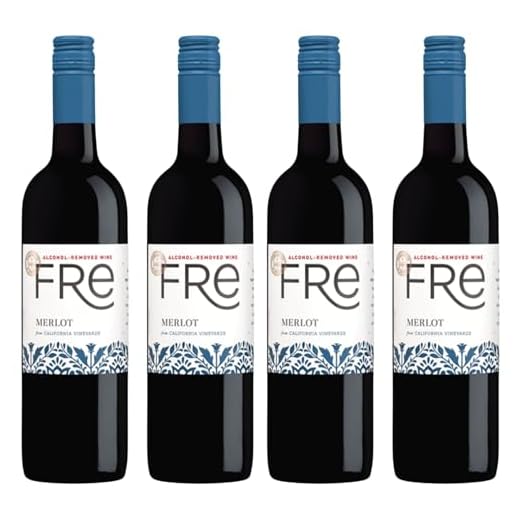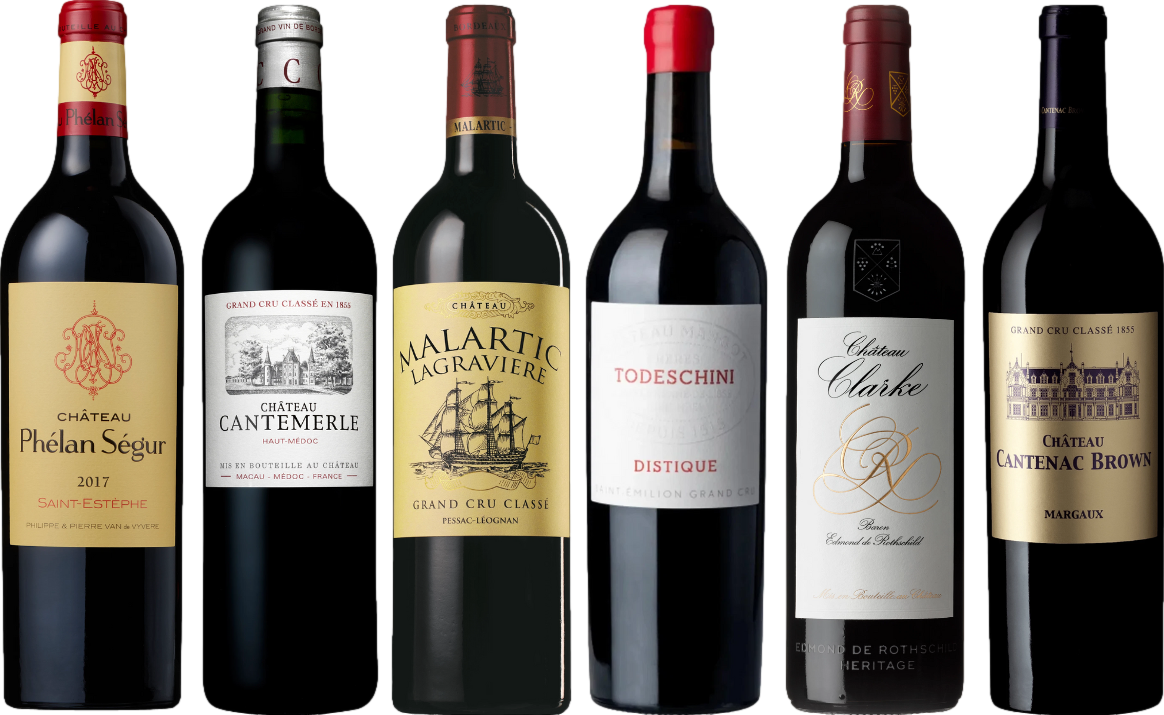



For a smooth and approachable red, I highly recommend exploring the attributes of Merlot. This varietal is celebrated for its soft tannins and fruit-forward profile, making it an excellent choice for both novice and seasoned wine enthusiasts. You’ll often encounter notes of black cherry, plum, and chocolate, which contribute to its rich character.
When selecting a bottle, consider regions like Bordeaux, California, and Washington State, each offering unique expressions. Bordeaux wines, particularly from the Right Bank, often exhibit a blend of elegance and complexity, while those from California tend to be more fruit-driven and accessible. If you’re looking for a balanced option with a pleasant finish, a California Merlot might be your best bet.
Pairing suggestions abound with this varietal. Its versatility makes it an ideal companion for a range of dishes, from grilled meats to hearty pastas. A classic pairing would be a tender filet mignon or mushroom risotto, which beautifully complements the wine’s inherent fruitiness. Experimenting with different pairings can lead to delightful discoveries, enhancing both your meal and your glass.
Characteristics of Merlot
This varietal is known for its smooth texture and approachable flavor profile, making it a favorite among many. Expect notes of ripe plum, black cherry, and chocolate, often accompanied by subtle herbal undertones. The body typically ranges from medium to full, with a soft tannin structure that allows for easy drinking.
Food Pairings
Pairing this red with a variety of dishes is a delight. It complements roasted meats, pasta with rich sauces, and even grilled vegetables. A classic match is a juicy burger or a hearty stew, where the wine’s soft tannins enhance the meal without overpowering it.
Regions of Origin
While it thrives in various regions, notable producers hail from Bordeaux, California, and Chile. Each locale imparts unique characteristics; for instance, Bordeaux’s versions tend to be more structured and complex, while those from California often showcase ripe fruit flavors. Exploring these regional differences can enrich your experience.
Understanding Merlot’s Flavor Profile
For those looking to explore the nuances of this varietal, I recommend focusing on its characteristic fruit-forward profile. Expect notes of black cherry, plum, and raspberry, which create a luscious mouthfeel that many find appealing.
When tasting, pay attention to the subtleties:
- Fruity Notes: Dominant flavors often include black fruits, with hints of red berries.
- Herbaceous Undertones: Look for traces of green bell pepper or black olive, depending on the region of origin.
- Spice Elements: You might detect soft hints of baking spice, such as cinnamon or nutmeg, adding complexity.
- Oak Influence: Aging in barrels can impart vanilla and toasted notes, enhancing the overall experience.
The texture is typically smooth, with softer tannins compared to other reds, making it approachable for those new to red varietals. The acidity level is moderate, which allows it to pair well with various dishes.
For a delightful pairing, consider serving this varietal with:
- Grilled meats, such as lamb or beef.
- Rich pasta dishes featuring tomato-based sauces.
- Cheeses like aged cheddar or gouda.
In summary, this varietal is versatile, making it suitable for numerous occasions, from casual gatherings to more formal dinners. Enjoy experimenting with different pairings to discover your favorite combinations.
Ideal Food Pairings with Merlot
For an exquisite experience, enjoy this grape with roasted meats, particularly lamb or beef. The tannins complement the savory flavors perfectly.
Consider pairing it with a rich mushroom risotto; the earthiness of the mushrooms enhances the wine’s depth. Grilled vegetables also make an excellent match, bringing out the fruitiness.
Charcuterie boards featuring aged cheeses, such as Gouda or Gruyère, will highlight the smooth texture and fruit notes, creating a balanced tasting experience.
For a delightful contrast, try a dark chocolate dessert. The sweetness of the chocolate juxtaposes beautifully with the wine’s berry characteristics.
Asian-inspired dishes, like teriyaki chicken or duck, work surprisingly well, as the sauce’s sweetness harmonizes with the wine’s profile.
For a casual option, enjoy it with a classic cheeseburger. The richness of the burger’s flavors pairs seamlessly with the smooth palate of this varietal.
Regions Known for Merlot Production
California’s Napa Valley stands out as a prime location for exceptional Merlot. The region’s warm climate, combined with a diverse range of soils, creates ideal conditions for cultivating this grape. Notable producers like Duckhorn Vineyards and Stag’s Leap Wine Cellars consistently deliver high-quality offerings, showcasing rich fruit flavors and smooth tannins.
Bordeaux, particularly the Right Bank, is another prestigious area renowned for its Merlot-based blends. Regions such as Pomerol and Saint-Émilion are synonymous with elegance and complexity. Château Pétrus, a benchmark for luxury, exemplifies the heights this varietal can reach in terms of depth and character.
Other Noteworthy Regions
In Australia, Margaret River has gained recognition for its Merlot, often characterized by ripe berry notes and a velvety texture. Winemakers here are increasingly embracing the potential of this varietal, crafting expressive wines that reflect the region’s maritime climate.
South Africa’s Stellenbosch also contributes to the global Merlot scene, producing wines that balance ripe fruit with herbal undertones. The unique terroir of the region enhances the complexity, making it worth exploring for enthusiasts seeking new experiences.
How to Properly Serve and Store Merlot
Serve this varietal at a temperature between 60°F and 65°F (15°C to 18°C) to enhance its aromas and flavors. Use a standard red wine glass, allowing enough room for the wine to breathe. Pour about one-third of the glass to facilitate aeration. Swirl gently before tasting to release the bouquet.
For optimal storage, keep bottles upright in a cool, dark place with consistent temperatures, ideally between 55°F and 65°F (13°C to 18°C). Humidity levels should be around 70% to prevent cork drying. Avoid direct sunlight and vibrations, as these factors can compromise quality.
After opening, keep the bottle corked and refrigerate if not consumed within a few days. A vacuum pump can also help preserve the remaining contents by removing air.
| Temperature Range | Storage Conditions |
|---|---|
| 60°F – 65°F (15°C – 18°C) | 55°F – 65°F (13°C – 18°C) |
| Use standard red wine glass | Humidity: ~70% |
| Swirl before tasting | Avoid sunlight and vibrations |
Identifying Quality Merlot Bottles
Look for bottles with a vintage date on the label; a year that reflects good weather conditions in the region can indicate higher quality. Optimal years vary by area, but generally, a vintage between 2015 and 2018 has produced exceptional examples.
Label Indicators
- Seek out producers known for excellence. Names like Chateau Pichon Longueville and Duckhorn Vineyards consistently deliver outstanding examples.
- Check for designations such as “Reserve” or “Single Vineyard,” which suggest meticulous selection and care in production.
- Look for alcohol content around 13.5% to 15%. This range often signifies a balanced and well-structured bottle.
Aroma and Taste
Upon opening, swirl the glass to release the aromas. High-quality options will exhibit complex scents including dark fruits like black cherry and blackberry, alongside notes of cocoa, vanilla, or spice. Taste for a velvety texture and a lingering finish, which indicates maturity and careful aging.
For those who appreciate versatility in food pairing, consider a bottle that balances fruitiness with a touch of acidity. This harmony enhances the experience across various dishes.
Finally, don’t overlook the importance of proper storage. Keep your selections in a cool, dark place and avoid temperature fluctuations. If you find yourself needing tools to maintain your wine collection, consider investing in a circular pressure washer for cleaning purposes.








